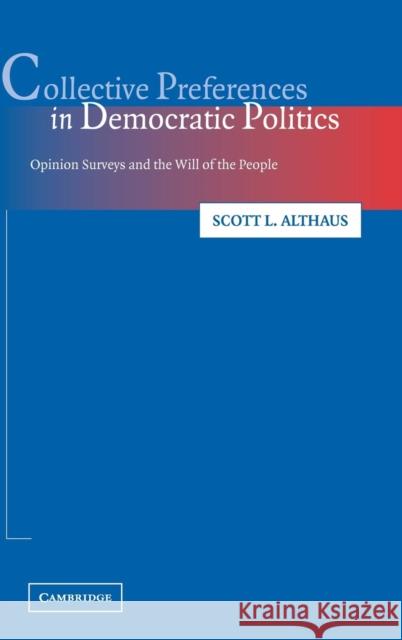Collective Preferences in Democratic Politics: Opinion Surveys and the Will of the People » książka
topmenu
Collective Preferences in Democratic Politics: Opinion Surveys and the Will of the People
ISBN-13: 9780521820998 / Angielski / Twarda / 2003 / 386 str.
Collective Preferences in Democratic Politics: Opinion Surveys and the Will of the People
ISBN-13: 9780521820998 / Angielski / Twarda / 2003 / 386 str.
cena 237,18 zł
(netto: 225,89 VAT: 5%)
Najniższa cena z 30 dni: 238,09 zł
(netto: 225,89 VAT: 5%)
Najniższa cena z 30 dni: 238,09 zł
Termin realizacji zamówienia:
ok. 16-18 dni roboczych.
ok. 16-18 dni roboczych.
Darmowa dostawa!
It advises how to make better use of opinion polls to represent the people's voice.











